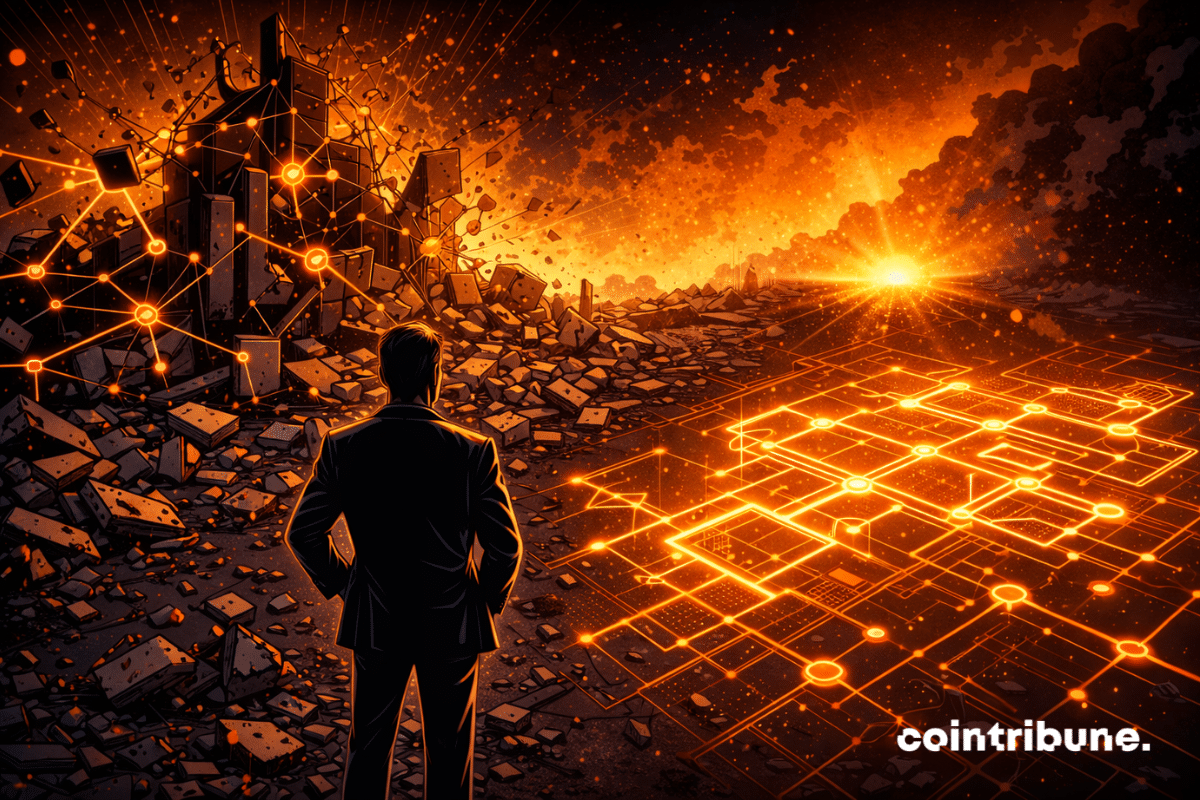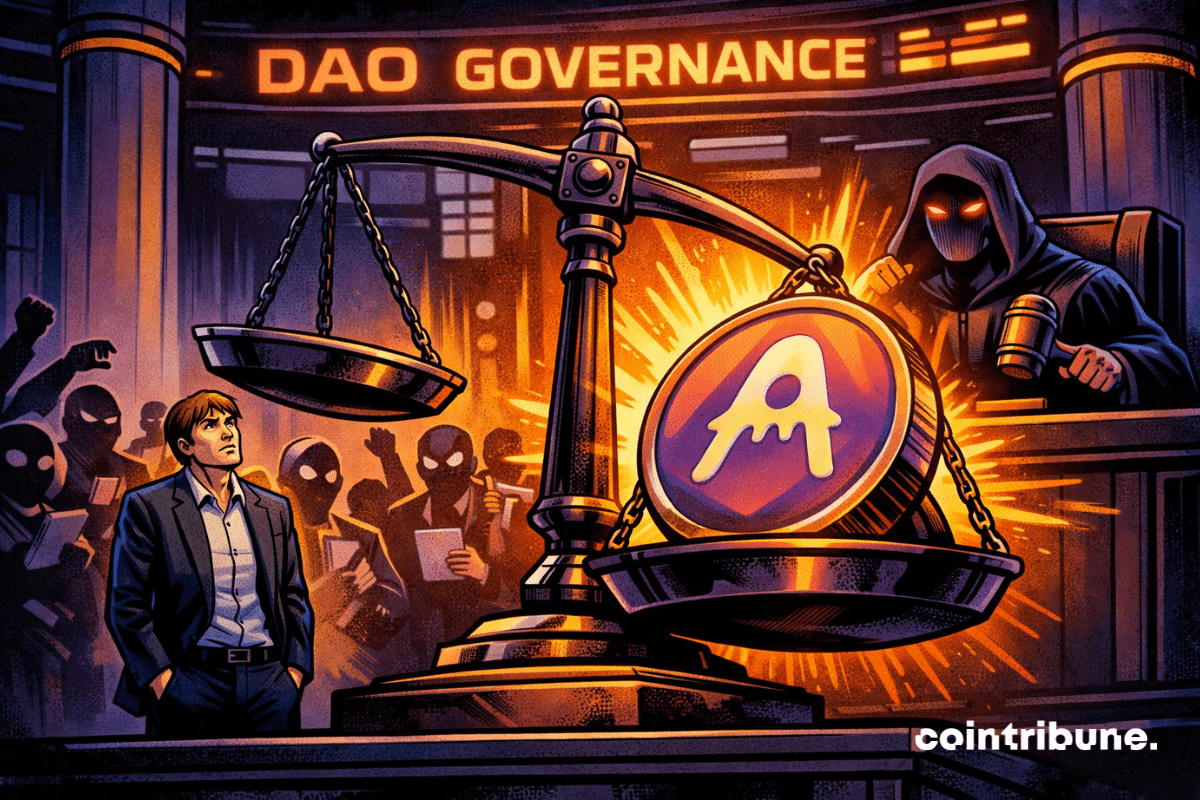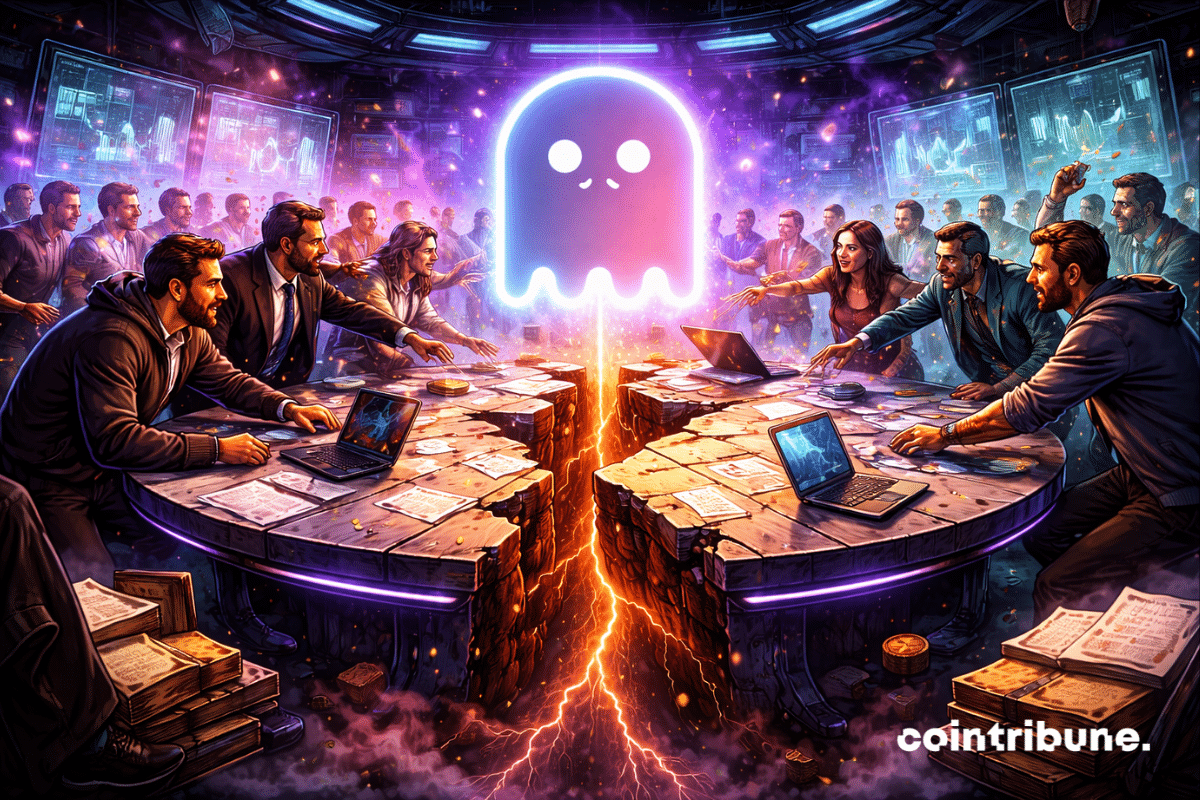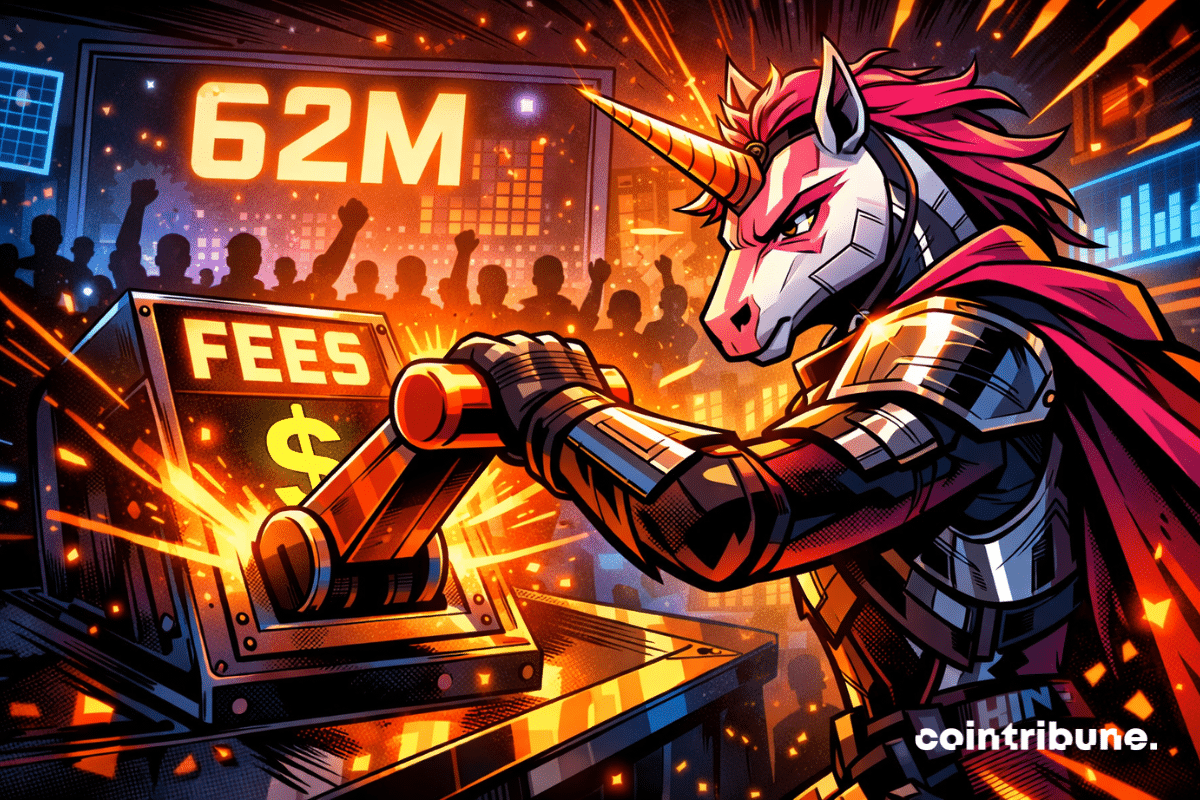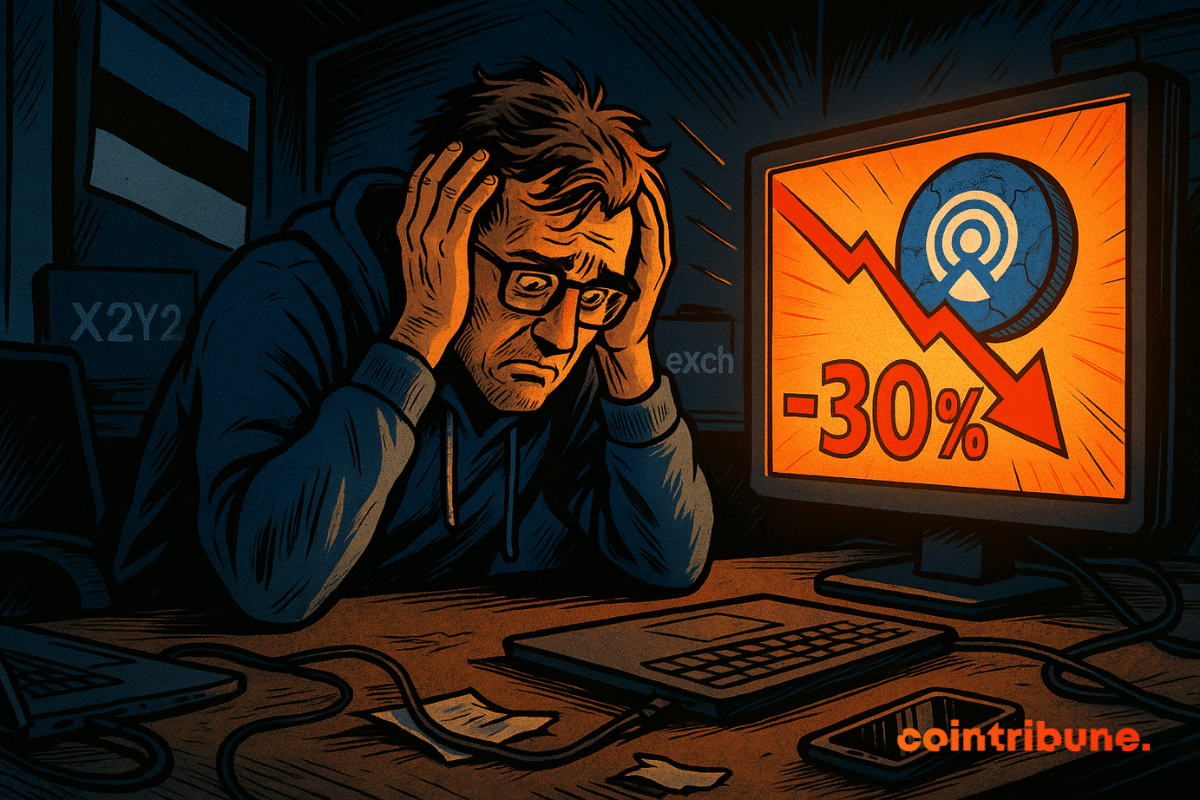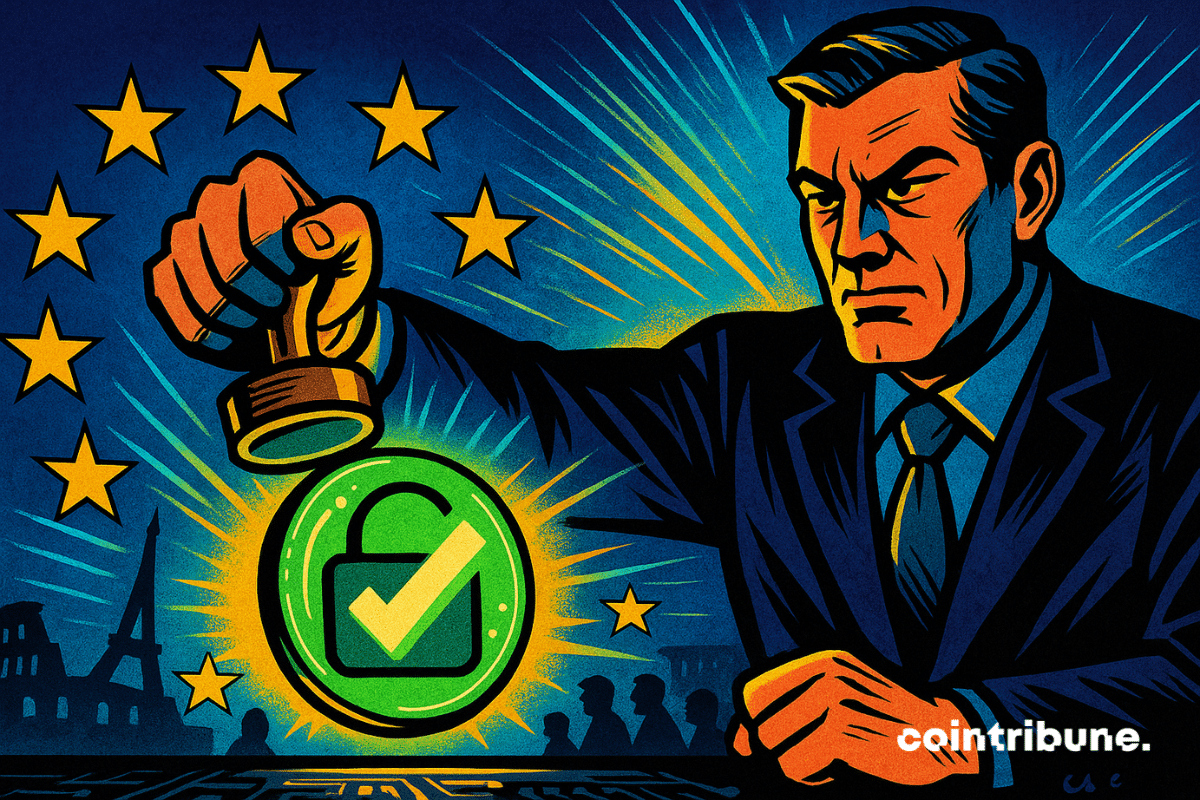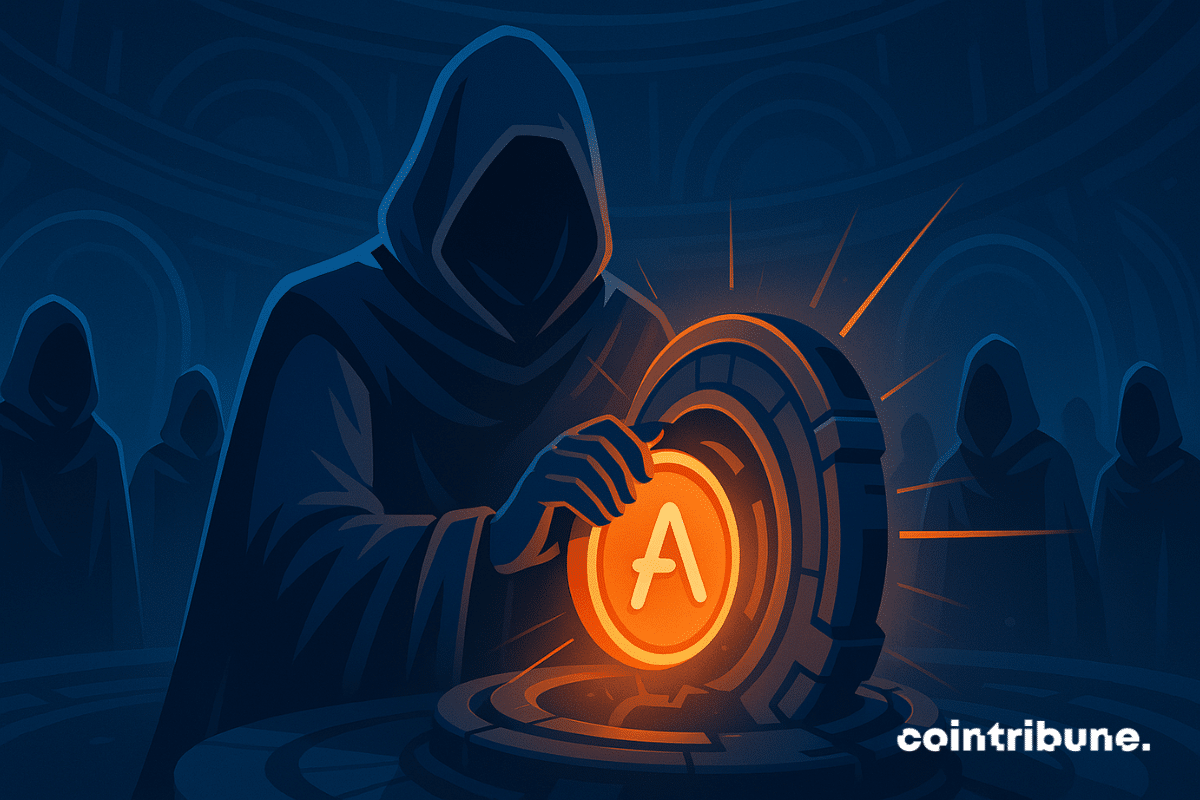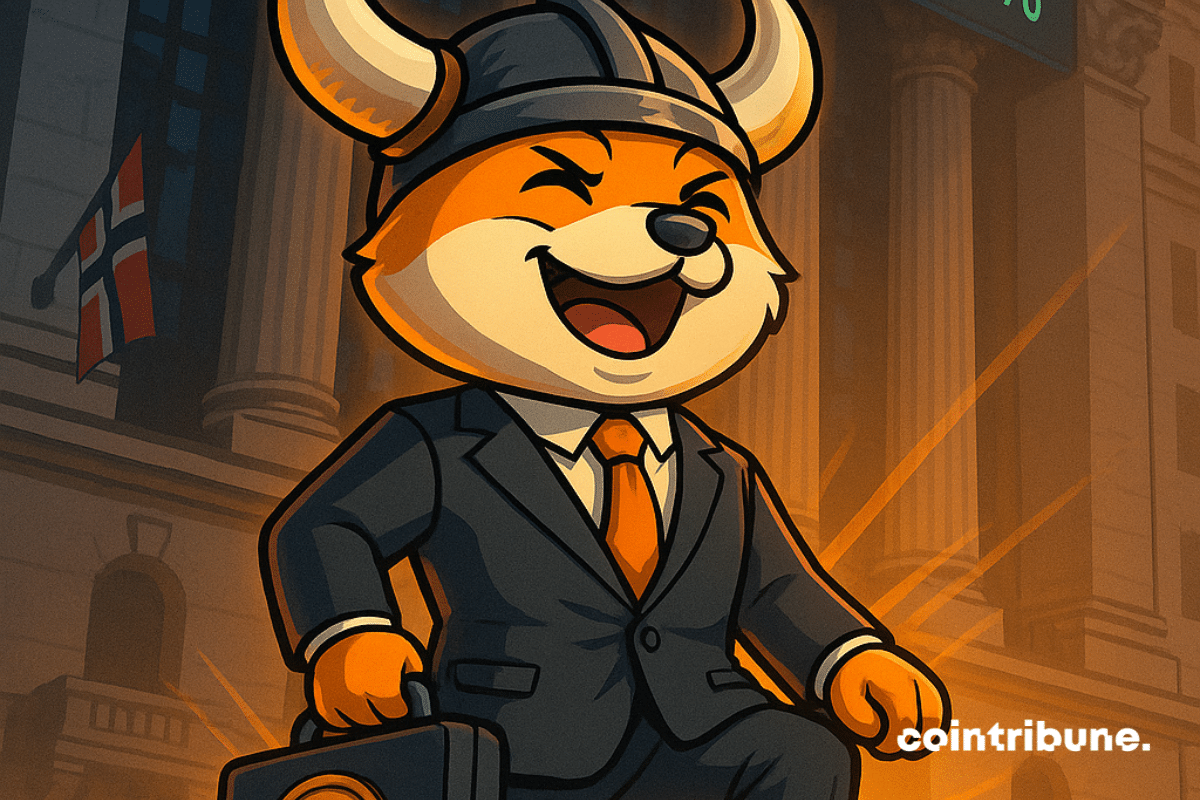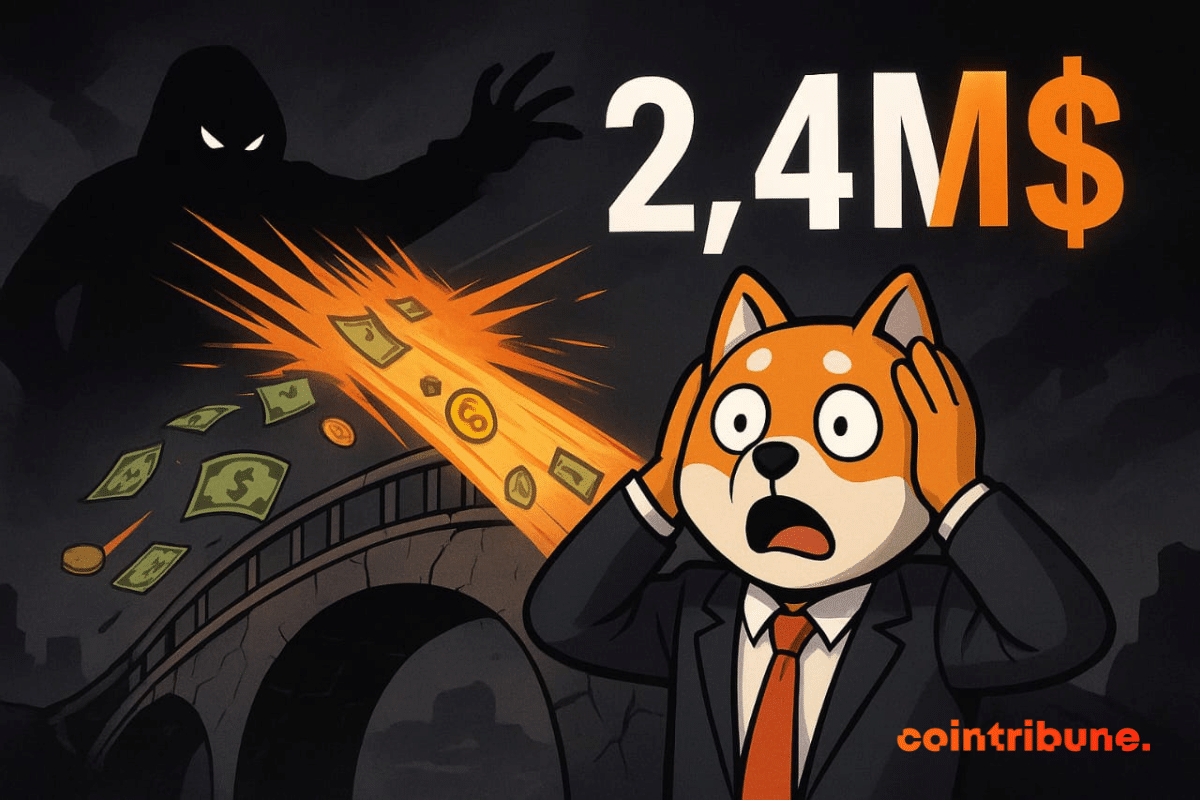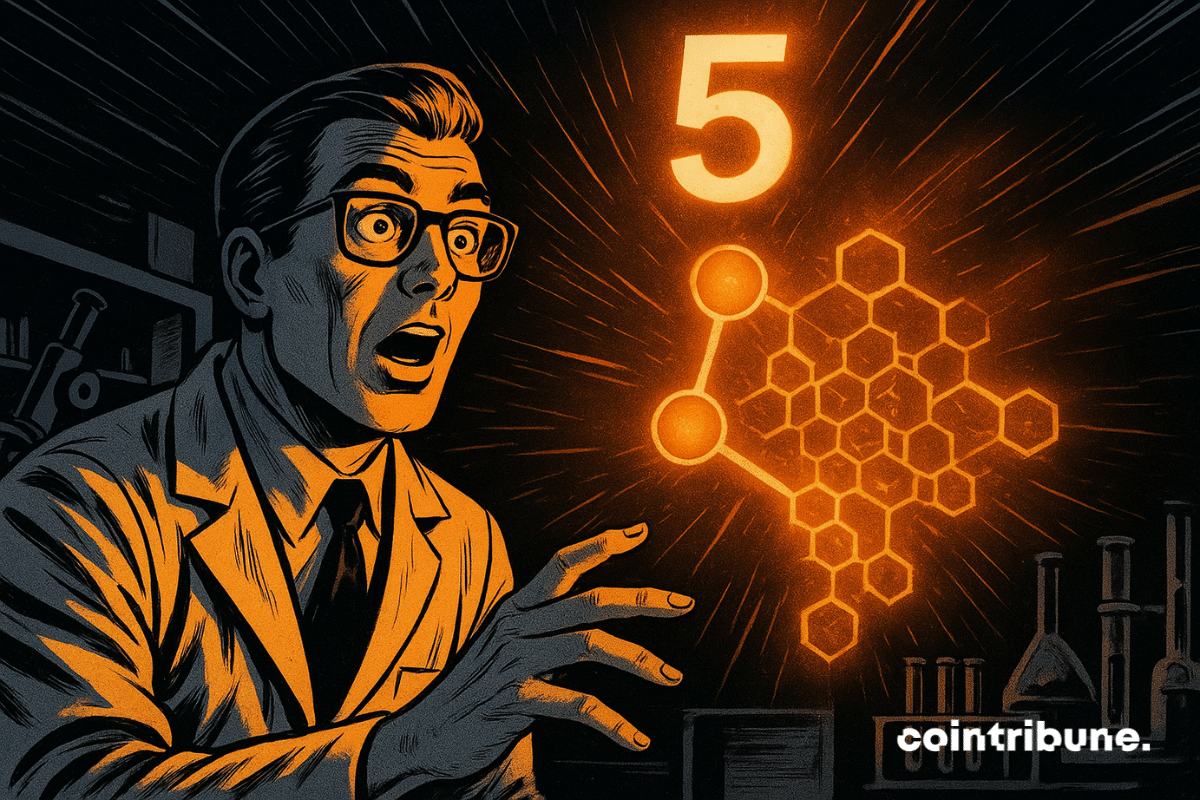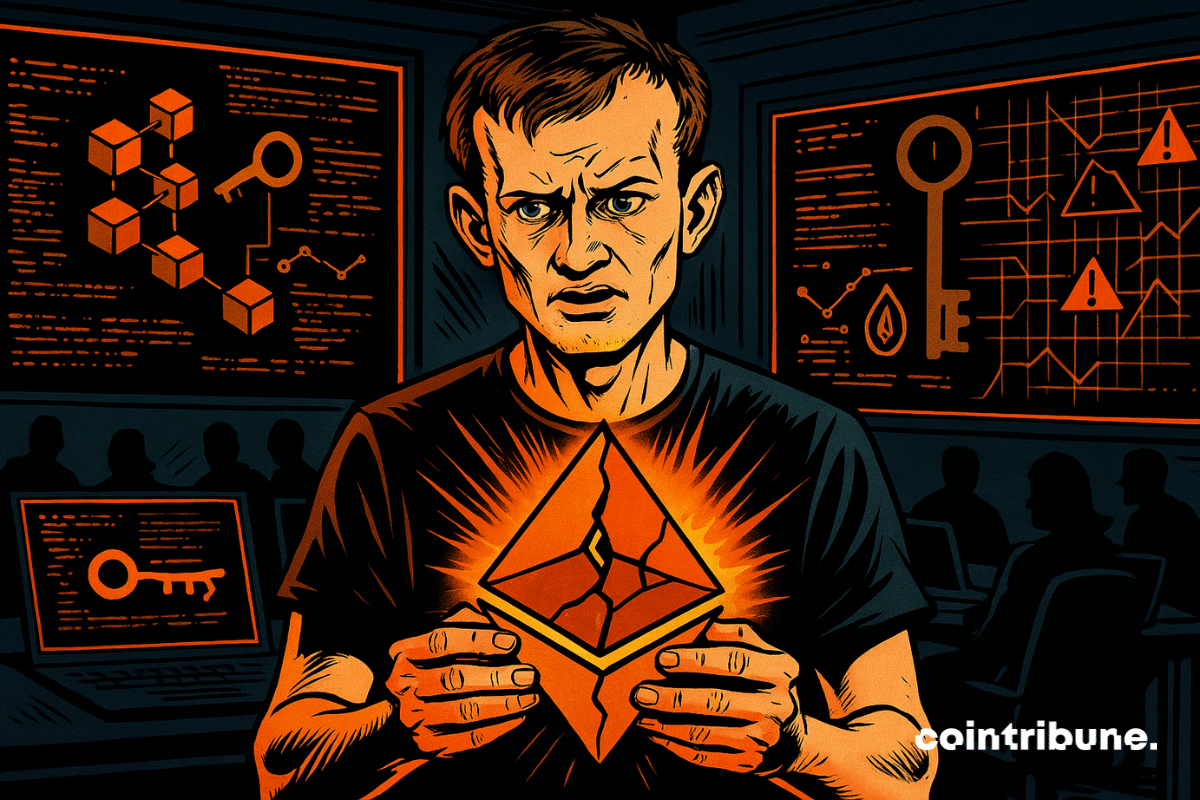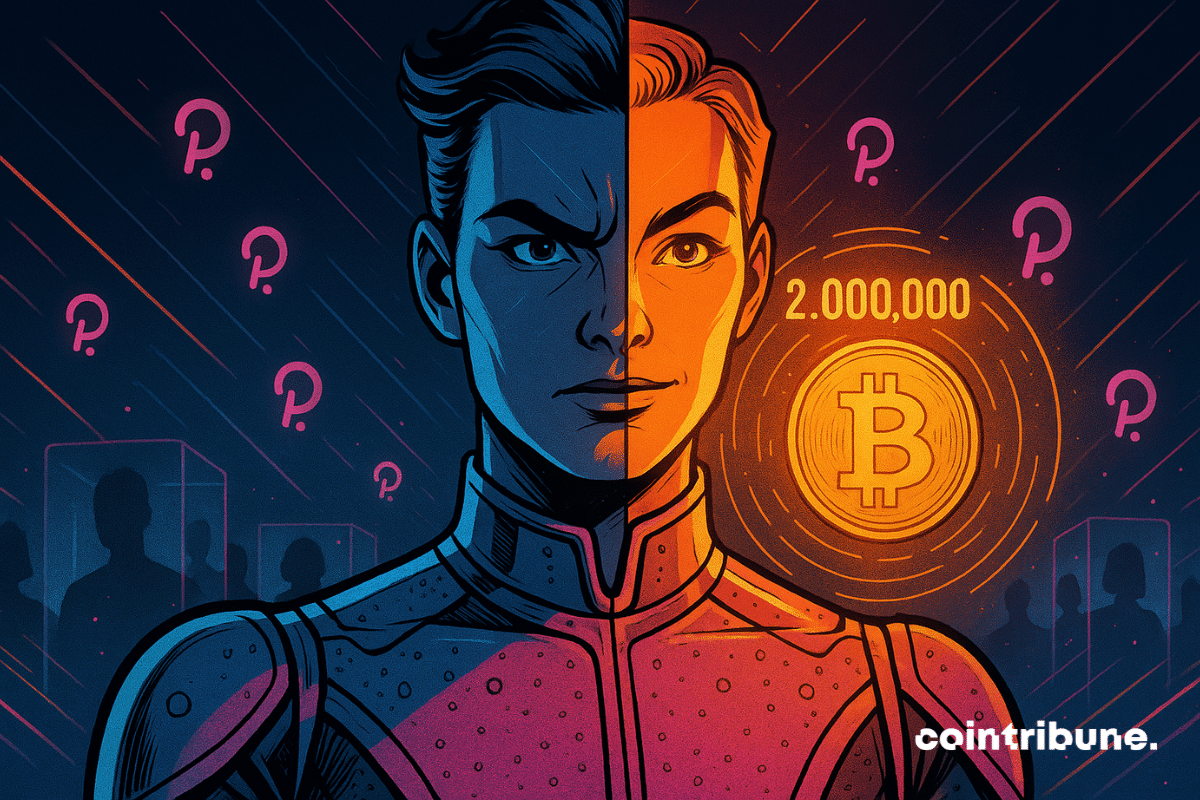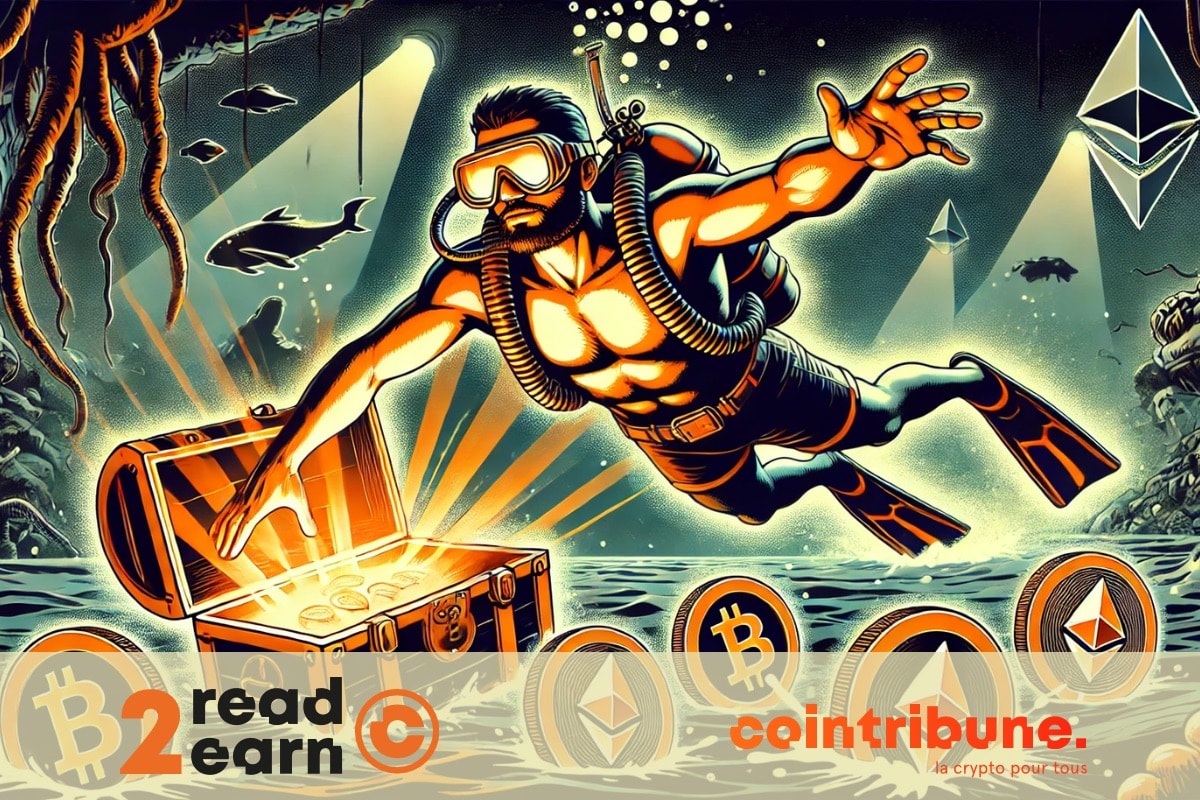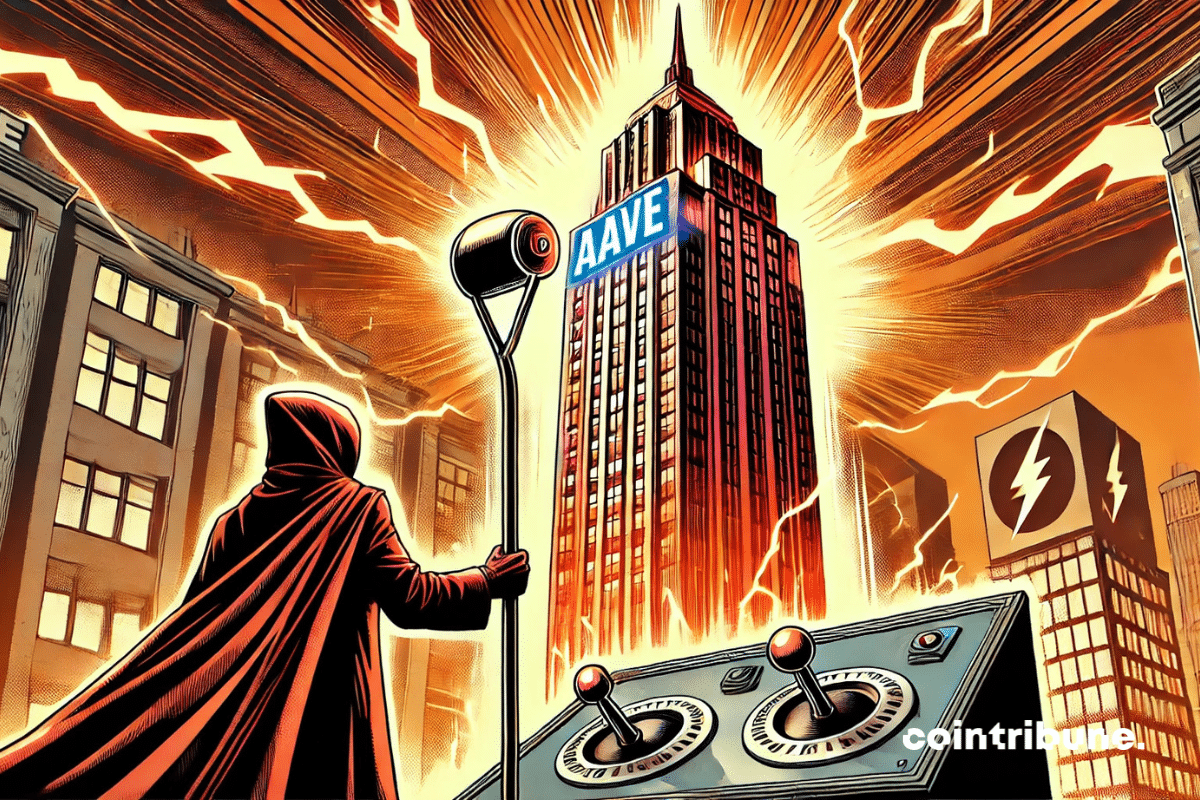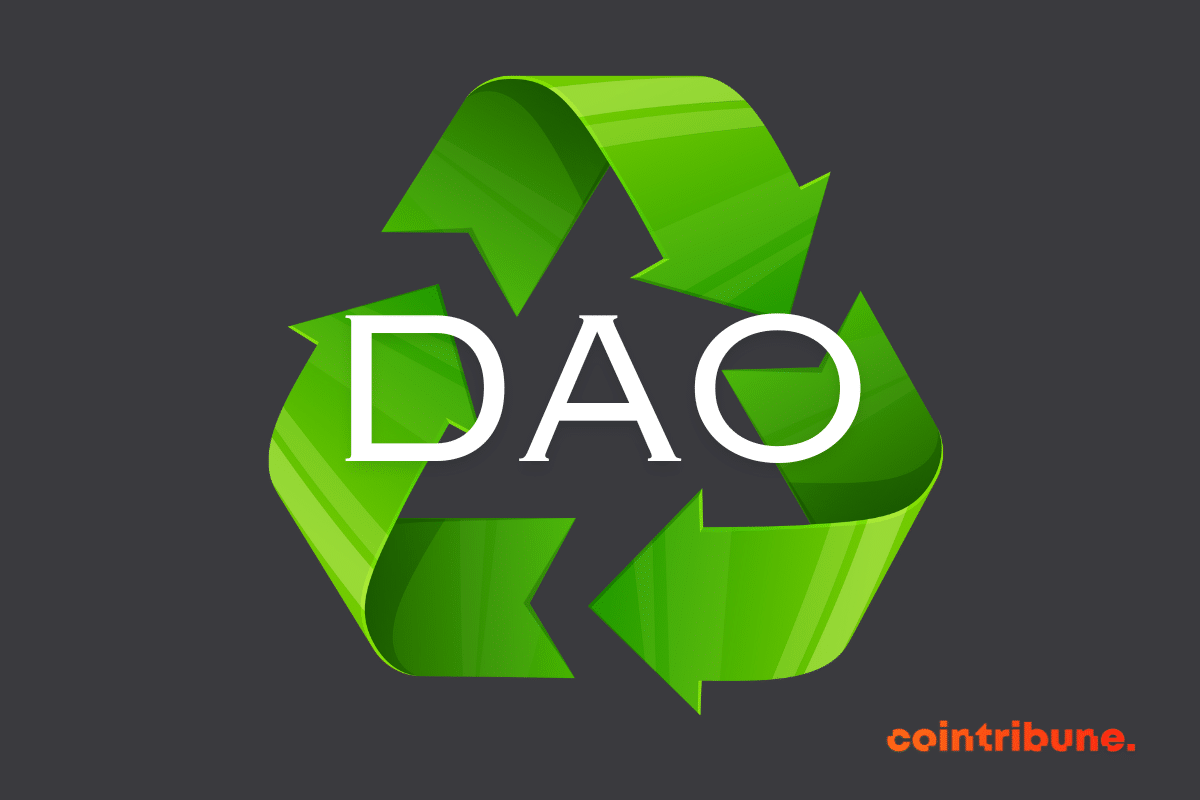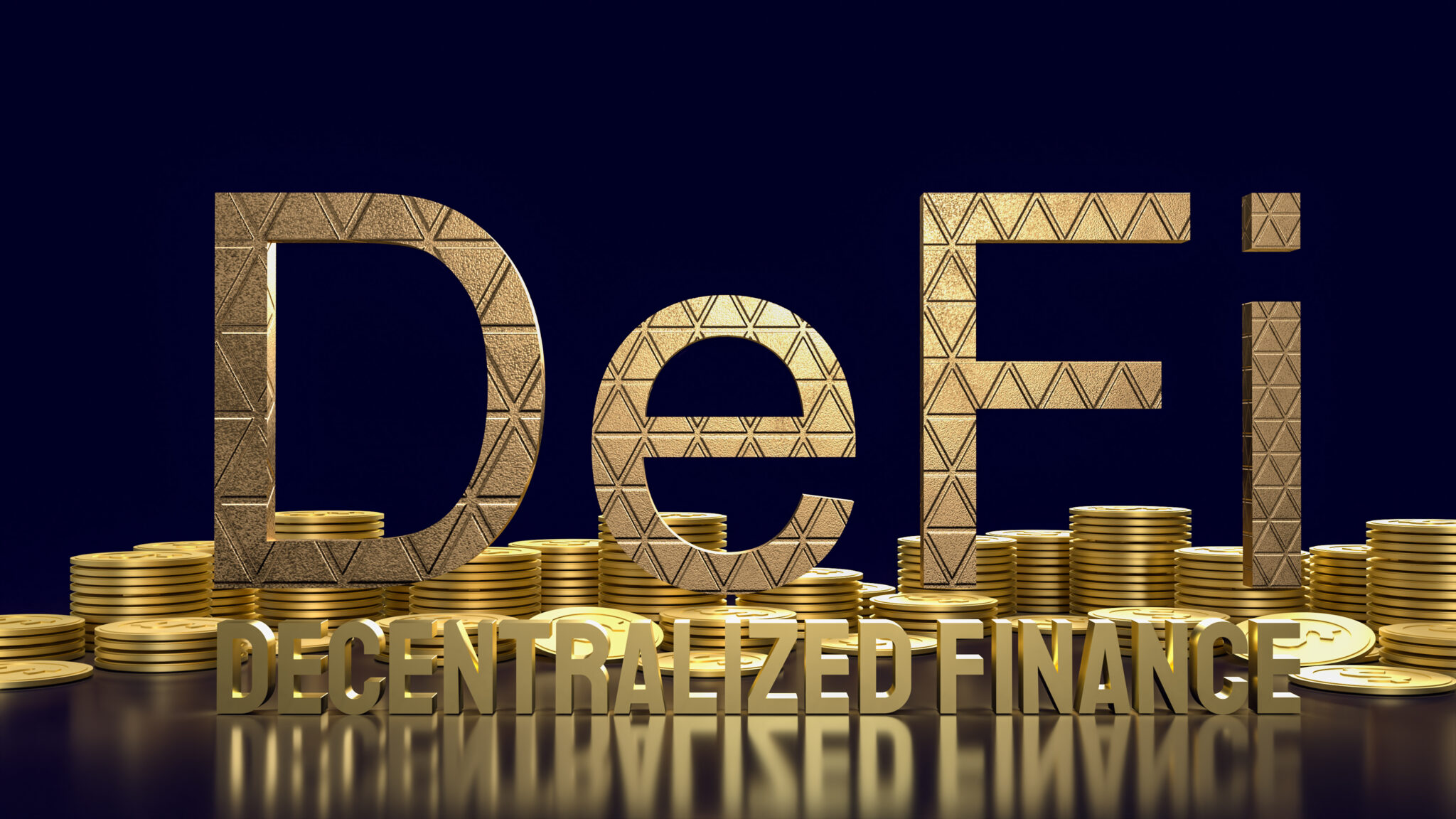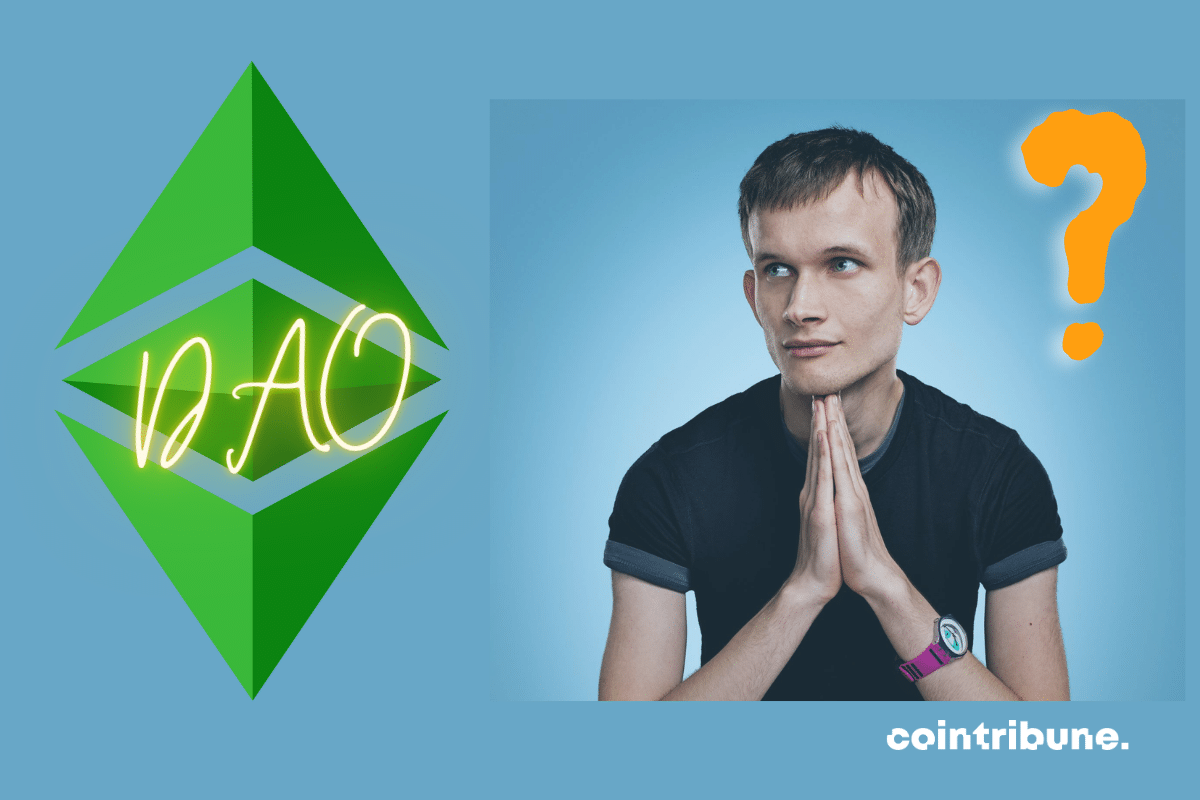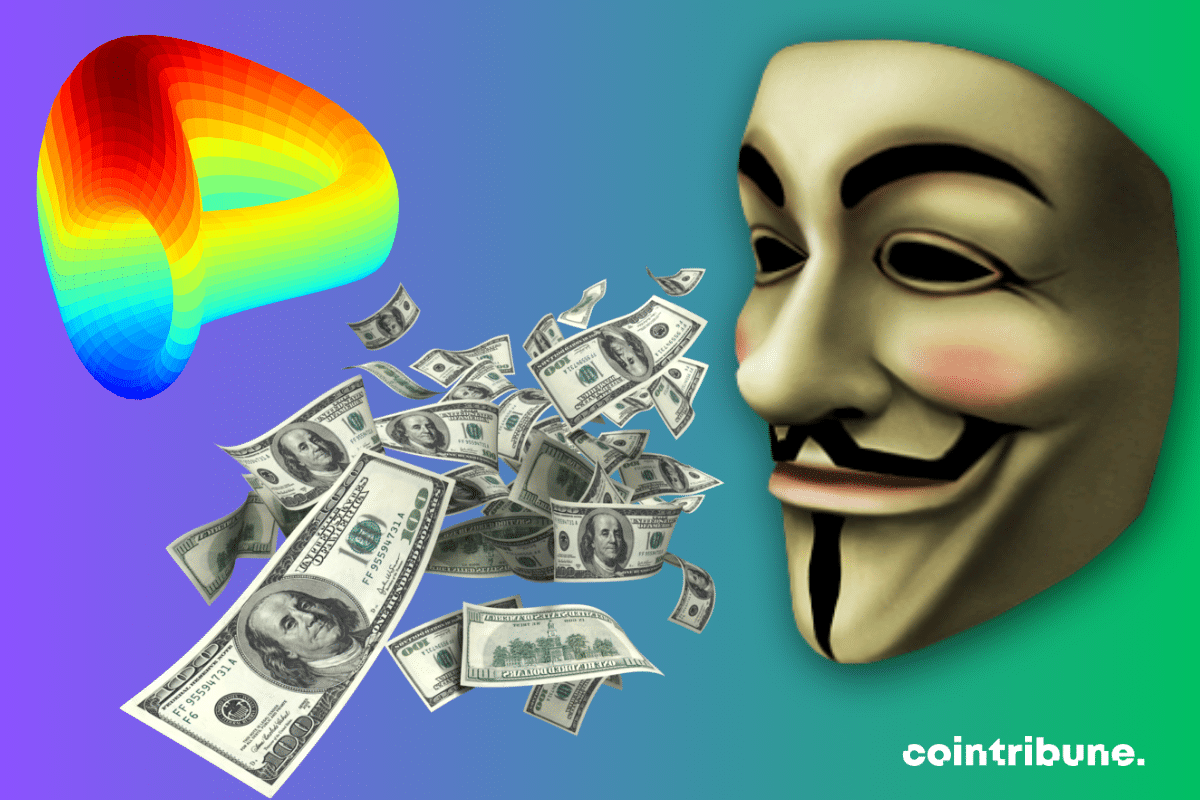While DAOs were meant to embody the promise of decentralized governance, Vitalik Buterin today delivers a harsh assessment: their current model is exhausted. In a widely shared post, the Ethereum co-founder denounces rigid structures, dominated by large holders and unable to address complex coordination challenges. His call for a new design marks a pivotal moment for DAOs, urging them to move beyond simple voting logic to become true on-chain infrastructures.
Theme DAO
When the boss of Aave puts 15 million on the table, crypto wonders who really governs... and who votes without raising a hand.
Aave, a pillar of DeFi, is faltering under the weight of a controversial decision. Far from the technical debates about yield or innovations in smart contracts, it is governance that crystallizes the tensions. A rushed vote on the transfer of the protocol's brand assets to the DAO was launched without consensus, provoking a strong reaction within the community. Between accusations of forcing the issue and criticism of the transparency of the process, the crisis exposes the fragility of a model often cited as an example.
Uniswap burns 100 million UNI, activates its fees and makes the DAO swear allegiance. Crypto enters adulthood... or a Wyoming courtroom?
A site fades away, a token collapses: DappRadar takes its bow, leaving its DAO stranded and the crypto market searching for a new GPS for its scattered data.
Aave Labs has taken a significant step toward regulated on-chain finance in Europe. The company has received authorization under the EU’s Markets in Crypto-Assets (MiCA) framework, allowing euro-to-stablecoin conversions at no cost. This places Aave among the first major DeFi projects cleared to offer compliant payment services across the European Economic Area.
Aave steps up a gear. Its decentralized autonomous organization (DAO) has just unveiled an ambitious buyback program that could redefine its treasury management. The initiative would transform occasional buybacks into a permanent policy, funded by the protocol's growing revenues. But will this strategy be enough to sustainably support the token against fierce competition in DeFi?
The memecoin FLOKI has just reached a historic milestone. By entering the Swedish stock exchange Spotlight Stock Market with its first crypto ETP, the community token finally opens up to traditional financial markets. A symbolic advancement that confirms the rise of digital assets in an increasingly regulated ecosystem.
The crypto scene has once again proven that no protocol, no matter how popular, is completely safe. The Shibarium bridge, a strategic gateway between the Layer 2 of the same name and Ethereum, was the target of a swift flash loan attack that siphoned the equivalent of 2.4 million dollars. Behind this move, a maneuver both technical and psychological demonstrating the persistent flaws of decentralized security.
Welcome to this special mini-guide about key projects in the DeSci field (or Decentralized Science in French). This fairly recent movement is nevertheless a key player in saving current health systems and could revolutionize science. Enough to shed light on this Web3 topic that will undoubtedly mark a turning point for new generations and their health.
When the guru of Ethereum worries about his own creature, there is something fishy under Web3. Vitalik pulls out the tests… and his anti-glitter blockchain scalpel.
Polkadot wants to trade its tokens for bitcoin in the midst of a cryptocurrency storm. A bold maneuver that shakes purists... and makes lurking maximalists smile.
Cointribune is pleased to invite you to its new Read 2 Earn quest dedicated to DAOs! An adventure where every reading earns you crypto rewards, while allowing you to understand the fundamentals, the stakes, and the secrets to succeed in this rapidly expanding decentralized universe.
Like a rising tide, Aave is reshaping its economy: buybacks, redistribution, protection... The fragile balance of decentralized finance wavers under this bold overhaul.
The intersection between blockchain technology and ecology is taking shape through ecological DAOs, a revolutionary initiative for a sustainable future. These organizations redefine the use of technology not only for innovation but also for environmental protection. In the face of current environmental challenges, they offer a new perspective on the use of technology for the good of the planet. This article explores the revolution of DAOs in digital governance, the impact of blockchain on the environment, and the pioneering role of ecological DAOs in green technology.
In a world where technology is constantly redefining existing paradigms, education is no exception. The emergence of decentralized autonomous organizations (DAOs) brings a new dimension to this crucial sector. These blockchain-based structures offer unprecedented possibilities to transform the way education is administered and delivered. In the face of a traditional educational system that is often rigid, DAOs provide a flexible and participatory alternative. This article explores the implications of DAOs in education, examining their functioning as well as the opportunities they offer and future trends in this field.
Decentralized finance is today revolutionizing the image of traditional finance. Initially rigid, it now aims to be free and accessible to anyone with internet access. Furthermore, it generates unprecedented interest and currently does not adhere to any body of legal rules. Can we then assert that it embodies the law of the users?
The emergence of decentralized autonomous organizations (DAOs) marks a significant milestone in the use of blockchain for collaborative governance. These unique entities offer a democratic and transparent approach, contrasting with traditional organizational models. However, creating and managing a DAO presents specific challenges, requiring a deep understanding of blockchain technology and decentralized governance principles. This article explores in detail the crucial steps of creating and managing a DAO, from the preparatory phase to launch and ongoing management.
Decentralized Autonomous Organizations (DAOs) represent a major innovation in the field of blockchain. They redefine how collective decisions are made and managed. These unique digital entities merge blockchain technology with principles of democratic governance, thus creating a new paradigm for collaboration and organizational management. But how do they actually work? This article aims to unveil the internal mechanisms of DAOs, providing an in-depth understanding of their dynamics and potential.
In the world of cryptocurrencies, DAO Maker stands out as a revolutionary platform, offering unique opportunities for investors and blockchain enthusiasts. Given the complexity and volatility of the cryptocurrency market, DAO Maker provides innovative solutions to secure and optimize investments. This article thoroughly explores how DAO Maker operates, its distinctive services and products, as well as the steps to become an active member or investor. We will guide you through the various aspects of this platform to help you understand its crucial role in cryptocurrency investment.
The emergence of decentralized autonomous organizations (DAOs) marks a significant evolution in the field of blockchain and digital governance. These entities, operating on principles of decentralization and autonomy, challenge traditional organizational models. They are characterized by their ability to operate without a centralized hierarchy, thus offering a new perspective on management and collective decision-making. However, DAOs are not without challenges, particularly in terms of security and regulation. This article aims to examine the characteristics, advantages, and inherent challenges of these organizations.
Vitalik Buterin, who had recently engaged in extensive discussions about the possibility of integrating even more features into Ethereum, has once again made waves in the cryptosphere. In his view, Ethereum staking pool operator DAOs could be the source of a major systemic crisis. Let's take a closer look!
Last Friday, Curve set a deadline for hacker DeFi to return all the stolen money: Sunday August 6 at 8 a.m. UTC. Once this deadline has passed, the team will take drastic measures to hand him over to the appropriate authorities. If the latest news is to be believed, the pirate has returned part of the jackpot. And in the process, he has dared to mock the crypto community by saying that he is "smarter" to evade possible hunts.
